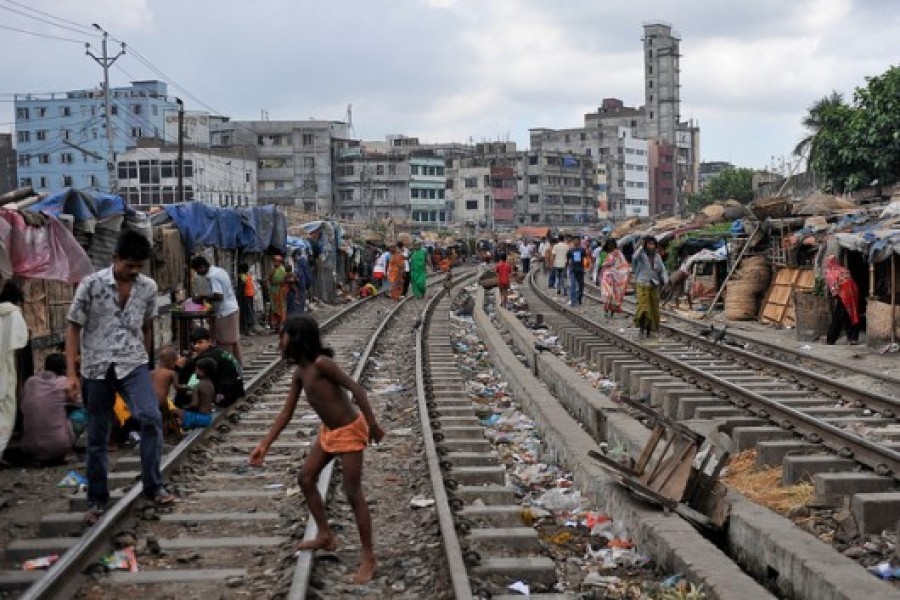
Published :
Updated :

The upcoming budget for financial year 2021-22 will doubtless put before the policymakers some new challenges. Of them, the most important one will be to take into account the impact of the long-persisting pandemic, especially, on the poverty situation. In truth, different studies conducted since the pandemic struck last year have come up with poverty figures that far outnumber those of the pre-pandemic times. Some recent estimates put the poverty rate at 42 per cent which is about twice the pre-pandemic rate at 21.6 per cent. Clearly, the largest chunk of the new poor consists of the people in the lower and the lowest income brackets, who lost their jobs at different phases of the pandemic control measures. Worse still, the pandemic has given rise to quite a new situation whereby many, just to avoid total job loss, are being forced to work with their previous or a new employer at a subsistence-level pay. Evidently, they also constitute the growing mass of the new poor.
But formulation of an effective strategy to address the issue of poverty depends crucially on having up-to-date information on the number and state of the poor. Sad to say, there is a lack of comprehensive database in the country in this respect. Hopefully, the Bangladesh Bureau of Statistics (BBS) will take urgent steps to create such a database on the country's poverty situation to meet the need of the researchers in the government as well as in the private sector.
Economists at a webinar on Sunday brought, among other points, this emergent issue to the fore. Fair enough, they urged the government so that adequate funds are earmarked for uplifting the new poor above the poverty line. It is important to note at this point that fund allocation in itself is not enough to ensure desired result in the sectors in question.
So, what is important is quality spending of the funds so allocated. That would require strengthening of the institutional capacity of the project implementing agencies concerned. Also, to improve things, strong monitoring and timely evaluation of those government agencies should be in place.
That apart, there should also be a well-defined policy on spending funds to mitigate poverty. Also, as part of the poverty reduction effort, the economists think, the government would do well to spend at least Tk. 51.32 billion per month. The amount, which is equivalent to 1.9 per cent of the country's average Gross Domestic Product (GDP), should be used for job creation and other related purposes.
Of course, poverty alleviation, public health, education and social safety net programmes (SSNPs) should continue to receive topmost priority in the budgets. Particularly, if the government opts for the more comprehensive social uplift and protection strategy for the poor as suggested by the economists.
Side by side with these efforts, the main barrier to the economy's advancement needs also to be addressed. The nation's low tax-GDP ratio is one such issue that warrants a reform. Similarly, the government needs to take appropriate measures to increase income tax's contribution to the overall revenue earning, which is hovering around 30-35 per cent over past five financial years.
What should not be lost sight of at this point is that poverty is a kind of problem that cannot be solved in isolation; it requires a composite approach. In fact, the success will not come as long as the economy's major roadblocks to progress have been substantially addressed.


 For all latest news, follow The Financial Express Google News channel.
For all latest news, follow The Financial Express Google News channel.